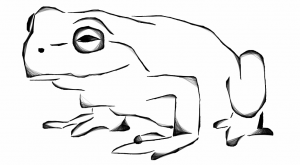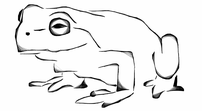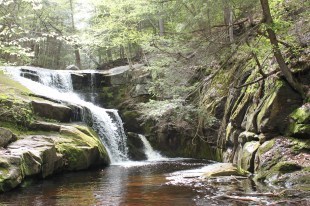Andrew Furst's Blog, page 15
July 1, 2018
The Best Articles of June 2018 from Andrew Furst
Here’s a selected list of what people were reading here on andrewfurst.net in June 2018:
ESPecially Nuts? – Say What?
Natural Bridge in North Adams MA
Sea by Tom Pickard – Compass Songs
The Theophany – The Latest in the Shadowbox Series
Moon Over Little Italy (Baltimore) – Tiny Drops (Photography)
People are Strange – Quotes
Comics Gallery
The Sutra on Totality
Ideas and A Good Idea – Thoughts on American Ideals
Can White People Be Victims of Racism? – Dialectic Two-Step

 At Patreon you can make small monthly micro-contributions that help support my work.
At Patreon you can make small monthly micro-contributions that help support my work.  If Patreon doesn’t work for you, then drop me a one time contribution at PayPal.me
If Patreon doesn’t work for you, then drop me a one time contribution at PayPal.me
The post The Best Articles of June 2018 from Andrew Furst written by Andrew Furst appeared on Andrew Furst.
June 30, 2018
Only a Theory – Say What?
[image error]
If you enjoyed this post, please like and share.
Say What? is an ongoing series of laconic exchanges on Buddhism in the format of a comic strip.
 Dialectic Two Step, Modern Koans, Verse Us, Say What?, and Minute Meditations all copyright Andrew Furst
Dialectic Two Step, Modern Koans, Verse Us, Say What?, and Minute Meditations all copyright Andrew Furst
Subscribe to My Newsletter Join me for a little peace through reflection, art, video, sound, and poetry
Join me for a little peace through reflection, art, video, sound, and poetry
The post Only a Theory – Say What? written by Andrew Furst appeared on Andrew Furst.
June 24, 2018
Can White People Be Victims of Racism? – Dialectic Two-Step
I recently had a wonderfully civilized chat on social media about the question “Can white people be victims of racism?” That fact that it was civilized is worthy of celebration. There were no temper tantrums and generally there was a free exchange of ideas and thoughts. Not everyone agreed, but no one got unhinged.
The question came up because a friend was having a conversation with her daughter about it. Her daughter took the position that white people could not be the victims of racism, because they are in a position of power. As we drilled down into it, there were some interesting discoveries made.
I started with googling a definition of racism. Here’s what I got:
Racism: prejudice, discrimination, or antagonism directed against someone of a different race based on the belief that one’s own race is superior.
If we keep things abstract, we could read this definition to clearly to say any person who suffered prejudice, discrimination because someone else felt their race was superior was a victim of racism. But a good size chunk of our cohort felt that this wan’t true for white people. So what is it about white people that shields them from this?
What’s Power Got To Do With Racism
My friend’s daughter said that white people can’t experience racism because they are in a position of power. I thought that she was wrong, but I also believed she was intuiting the right answer.
We have to accept the important role that power plays in this. Racism and power are closely related, but we should be careful not to treat them the same.
We can say that power exacerbates the effect of racism. For instance, if a person from a power group antagonizes someone in a non-power group, justice can be impeded because the non-power group doesn’t have the same access to the mechanisms of justice. This also compounds the suffering for the victim.
The combination is probably what people refer to when they talk about institutional racism. But I worry that the term might be unhelpful, so we should tease out exactly what it means.
White Privilege?
So called “white privilege” is the power thing. It can exist whether you’re racist or not. Power is the currency of oppression and privilege. One can be in the privileged group, but make a decent effort not to antagonize or feel superior to the non-privileged group. So how does this play out for white people who feel they live on the right side of this privilege and power line?
Let’s start with an example of racism where institutional power has less of an impact. Take a Somali refugee who has never committed a crime in Auburn Maine. Imagine they were tormented by a group of Latinos – who taunt them, calling them Muslim terrorists. The Latinos throw a bottle at their home breaking a window. In this case, neither group could be perceived as having more institutional power. It’s likely that justice might be meted out equivalently. If the police were to catch the Latino who threw the rock, they’d be charged and likely punished.
What If
Now let’s introduce power into our thought experiment. Imagine the Latinos were yelling racist slurs and ultimately assaulted an innocent Somali in a Somali neighborhood and several people witnessed it. Before the Latinos could leave the neighborhood, they could be confronted by a large contingent from the neighborhood, held in check until the police arrived, and based on witness testimony served justice. Here the power situation has changed. In this case justice is more likely to be served because in the Somali neighborhood, power is on their side.
In this second example, would you say that the Somali was not a victim of racism because they were in a position of power (on home turf)? I don’t think so. What power did in this situation was to increase the likelihood of justice. But it did not change the fact that there was racism.
This latter scenario feels absurdly unlikely. This is because of the power situation, there is a natural deterrent in that it doesn’t make sense for a Latino to enter a Somali neighborhood and taunt them. Turf makes a difference, right.
Racism is Universal
Here’s where power and racism blend in our mind. This is why my friends daughter made the leap to saying white people can’t be victims of racism. That’s not strictly true, but in the United States it feels vanishingly remote, because white males hold a vast majority of power here. It sounds absurd that the Donald Trumps, Jeff Bezos, and Mark Zuckerbergs of the world would be the victims of racism. Power is a key component of this intuition. But if Trump was called a “cracker”, could you really say he doesn’t have the right to take exception and call it racism?
You might be thinking this is sophistry, but I think there is an important distinction. Framing the problem correctly is half the solution. I believe if we understand the distinct roles that power and racism play, we will have a better understanding of the problem.
The lack of power leads to a state of oppression. Let’s go to the dictionary again, so we can be accurate
Oppression is the state of being subject to unjust treatment or control.
Tell It Like It Is
Racism in the context of power is oppression. It feels more authentic and severe (as it should be). It feels less antiseptic and watered down than “institutional racism”. It also preserves the definition of racism to include white people as victims.
In this age of new language, let’s not loose the severity of oppression that comes from the combination of racism and power. Call it what it is. Don’t put lipstick on that pig by calling it institutional racism. We understand oppression and the need to combat it. Not so when it comes to something called “institutional racism”.
If you enjoyed this post, please like and share.
Dialectic Two-Step is an ongoing series of my thoughts on questions that come my way.
Wisdom lies neither in fixity nor in change, but in the dialectic between the two. - Octavio
 Dialectic Two Step, Modern Koans, Verse Us, Say What?, and Minute Meditations all copyright Andrew Furst
Dialectic Two Step, Modern Koans, Verse Us, Say What?, and Minute Meditations all copyright Andrew Furst
Subscribe to My Newsletter Join me for a little peace through reflection, art, video, sound, and poetry
Join me for a little peace through reflection, art, video, sound, and poetry
The post Can White People Be Victims of Racism? – Dialectic Two-Step written by Andrew Furst appeared on Andrew Furst.
June 20, 2018
Letter to Kerouac’s Universe
A letter found at the grave of Jack Kerouac in Lowell MA[image error]
The post Letter to Kerouac’s Universe written by Andrew Furst appeared on Andrew Furst.
June 18, 2018
Does God Discriminate? – Modern Koans
Why do people discriminate, when God does not?
Response:
Does God discriminate? I can’t say one way or the other. In my conception of God, there would be no differentiation capable. But that’s what I think, not what God does.
Scripture certainly divides people. In the Bible, the people of Israel are the chosen people, the rest are Gentiles. Buddhist divide people up into the unenlightened and enlightened. Muslims divide between the faithful and the apostates. There are as many divisions as there are religions. In my opinion discrimination is human nature – that is it’s genetic.
Here’s a few reasons why people differentiate between us and them.
Because the genes that encode discrimination between us from them have survived. This implies there is a survival benefit that comes with discrimination. The obvious example is the ability to discriminate between friends and predators.
There is a genetic bias towards protecting those individuals who are genetically similar. We protect family over others.
Discrimination should be viewed from an ideological and a genetic perspective. Understanding that our genes provide us with a disposition to discriminate, we will be better able to understand our ideologies.
Things like institutional racism have deep roots, deeper than just our opinions. Knowing this, we can understand why it is so difficult to overcome. Knowing this we must view the status quo as an enemy of ideological evolution. There is hard work to be done to bring our world view into line with this modern world we’ve created.
If you enjoyed this post, please like and share.
I'd love to hear your thoughts in the comments below.
Modern Koans is an ongoing series that recognizes that good questions are often more important than their answers.
The riddles of God are more satisfying than the solutions of man. ― G.K. Chesterton
 Dialectic Two Step, Modern Koans, Verse Us, Say What?, and Minute Meditations all copyright Andrew Furst
Dialectic Two Step, Modern Koans, Verse Us, Say What?, and Minute Meditations all copyright Andrew Furst
Subscribe to My Newsletter Join me for a little peace through reflection, art, video, sound, and poetry
Join me for a little peace through reflection, art, video, sound, and poetry
The post Does God Discriminate? – Modern Koans written by Andrew Furst appeared on Andrew Furst.
June 9, 2018
Buffalo Creek Falls – A Two Minute Meditation
My visit to Wellington Lake and Buffalo Creek Falls felt like the most authentic Colorado Rockies experience of my entire trip in July 2016. 13 miles of dirt roads after 40 or so long and winding ones through Pike National Forest surrounded by the breathtaking majesty of the these mountains brought me to this little camping area under the shadow of Castle Mountain. The hike was an easy, pleasurable one, but always cautious of the bear that many signposts made clear were nearby. It was highlighted by several species of butterfly I’d never seen in the wild, as well as wildflowers, especially the Colorado Columbines.
The falls most interesting feature, which you’ll see late in the meditation, is the rippling formations at the top of the slide carved out of the rock over the eons. A testament to the blind playfulness of nature.
Buffalo Creek Falls, Bailey, Colorado
 The Waterfall Series – A significant part of the minute meditation series are these waterfall videos I’ve been taking for many years now. Most of the falls are in my native New England.
The Waterfall Series – A significant part of the minute meditation series are these waterfall videos I’ve been taking for many years now. Most of the falls are in my native New England.
If you’re a waterfall chaser here, I highly recommend the New England Waterfalls Guidebook. It’s the best way to locate, select, and get to the falls.
Click here to see a map of the waterfalls I’ve visited as part of the minute meditation series.
If you enjoyed this post, please like and share.Minute Meditations is an ongoing series of short videos, poems, and commentary intended as a meditation. Offered as an opportunity to step back from your cyber routine and settle into a more natural rhythm, if only for a minute.
 Dialectic Two Step, Modern Koans, Verse Us, Say What?, and Minute Meditations all copyright Andrew Furst
Dialectic Two Step, Modern Koans, Verse Us, Say What?, and Minute Meditations all copyright Andrew Furst
Subscribe to My Newsletter Join me for a little peace through reflection, art, video, sound, and poetry
Join me for a little peace through reflection, art, video, sound, and poetry
These videos are produced for those of us who spend an inordinately large amount of time in the cyber-world. They are not a substitute for unplugging from your devices and taking a stroll near trees, water, or a patch of unkempt grass. Getting out into the world – touching, smelling, hearing, and seeing nature is the best way to reconnect with our prime purpose.
What is our prime purpose? We are feeling and sensing machines. We are the universe looking back on itself. We are witness to the wonders and dangers of living in this corner of the cosmos. We are the seekers looking for connection a little further beyond yesterday’s borders and boundaries.
But sitting and staring at the screen robs us of the sustenance that we rely upon for wonder and sanity. These videos are an opportunity to bring the sensations of nature to you, while you’re in the cyber-world. Its an opportunity to relax your gaze, resettle your posture, and regain some depth in your breath. Listen and watch the video and allow your self to open up and recharge.
The post Buffalo Creek Falls – A Two Minute Meditation written by Andrew Furst appeared on Andrew Furst.
June 5, 2018
A Few Thoughts On Time – Collections
Here is a collection of thoughts on Time. It includes articles, questions, answers, etc. They’re drawn from a number of regular series including Modern Koans and Dialectic Two Step.

Illusions of Time – The Latest in the Shadowbox Series
Art

Which Direction? – Thoughts on Time
Quotes

Phased – Tiny Drops (Photography)
Art, iPhoneography, Tiny Drops (Photography)

Can I Stop Time With Meditation? – Dialectic Two Step
Dialectic Two-Step, Writings

Are the Laws of Physics Empty of Inherent Existence? – Modern Koans
Modern Koans, Writings

Timeless? – Say What?
Cartoons, Say What?

Nothingness? – Dialectic Two Step
Dialectic Two-Step, Writings

Is There Such A Thing As Time Travel? – Say What?
Cartoons

The post A Few Thoughts On Time – Collections written by Andrew Furst appeared on Andrew Furst.
June 3, 2018
Will Poverty Ever End? – Say What?
[image error]
If you enjoyed this post, please like and share.
Say What? is an ongoing series of laconic exchanges on Buddhism in the format of a comic strip.
 Dialectic Two Step, Modern Koans, Verse Us, Say What?, and Minute Meditations all copyright Andrew Furst
Dialectic Two Step, Modern Koans, Verse Us, Say What?, and Minute Meditations all copyright Andrew Furst
Subscribe to My Newsletter Join me for a little peace through reflection, art, video, sound, and poetry
Join me for a little peace through reflection, art, video, sound, and poetry
The post Will Poverty Ever End? – Say What? written by Andrew Furst appeared on Andrew Furst.
June 1, 2018
The Best Articles of May 2018 from Andrew Furst
Here’s a selected list of what people were reading here on andrewfurst.net in May 2018:
Comics Gallery
Natural Bridge in North Adams MA
Piano Reflection – Tiny Drops (Photography)
Sea by Tom Pickard – Compass Songs
Secular Buddhism – What’s Your Take? – Modern Koans
Does God Think? – Dialectic Two Step
Nesting in the Rain – A Two Minute Meditation
At What Point are We No Longer Human? – Modern Koans
Mohegan Moonset – Tiny Drops (Photography)
ESPecially Nuts? – Say What?

 At Patreon you can make small monthly micro-contributions that help support my work.
At Patreon you can make small monthly micro-contributions that help support my work.  If Patreon doesn’t work for you, then drop me a one time contribution at PayPal.me
If Patreon doesn’t work for you, then drop me a one time contribution at PayPal.me
The post The Best Articles of May 2018 from Andrew Furst written by Andrew Furst appeared on Andrew Furst.
May 31, 2018
Going to This Great Place – Verse Us (Poems by Me)
Going to This Great Place – a blackout poem.
We should all value our time.
We should all value our time together.
We should all value our time together, now.
[image error]
If you enjoyed this post, please like and share.
Verse Us – Poems I write: haiku, senryu, mesostics, free verse, random word constructions, I might even use rhyme or meter once and a while.
 Dialectic Two Step, Modern Koans, Verse Us, Say What?, and Minute Meditations all copyright Andrew Furst
Dialectic Two Step, Modern Koans, Verse Us, Say What?, and Minute Meditations all copyright Andrew Furst
Subscribe to My Newsletter Join me for a little peace through reflection, art, video, sound, and poetry
Join me for a little peace through reflection, art, video, sound, and poetry
The post Going to This Great Place – Verse Us (Poems by Me) written by Andrew Furst appeared on Andrew Furst.



